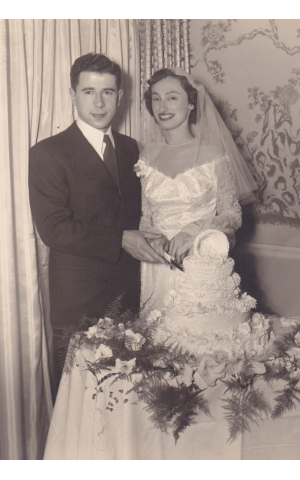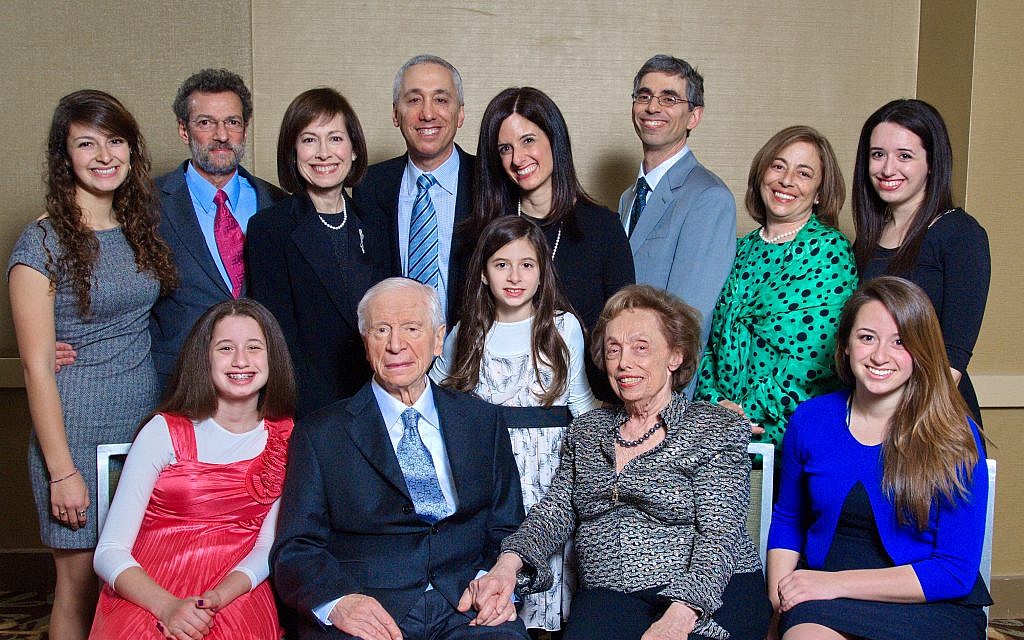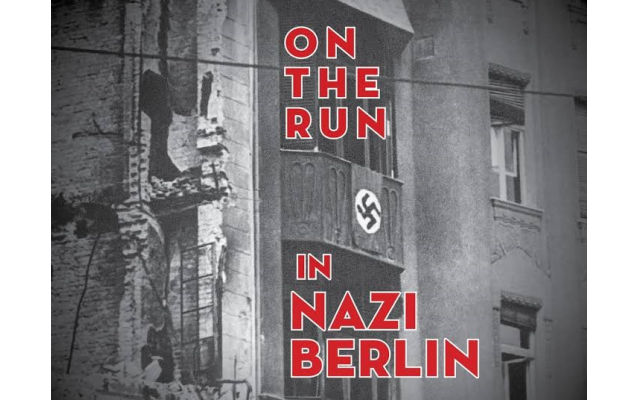Lewyn Reveals Unusual Story of Escape, Loss, Discovery
Local treasure Bev Lewyn has captured the gripping story of her father-in-law’s escape from Germany in her book “On the Run in Nazi Berlin.”
After 37 years with the Atlanta Journal-Constitution and now with the AJT, , Jaffe’s focus is lifestyle, art, dining, fashion, and community events with emphasis on Jewish movers and shakers.
During the Atlanta Jewish film and book festivals, we are reminded of and exposed to traditional and reexamined views and events from the annals of the Holocaust prism. Local treasure Bev Lewyn, a member of Beth Jacob Atlanta and Young Israel of Toco Hills, has captured the gripping story of her father-in-law’s escape from Germany with its very shocking subtext in her book “On the Run in Nazi Berlin.” It was first published in 2001 and her newly released edition exposes more research to fill in the puzzle pieces. How would one react after decades of marriage and five children to a spouse’s “new” memory that he had left behind another family?
“The book is an unusual Holocaust memoir in that Dagobert ‘Bert’ Lewyn was never in a concentration camp, nor was he hidden in one place. He was in Berlin the entire war. His story reads like a Hollywood action film; he did crazy things to survive. It is also a remarkable story for how much Bert forgot, including that he had been legally married and had a child,” Lewyn said.
Lean in to read why it took Bev seven years to extract the full story from Bert.
Jaffe: Why did your father-in law choose you to reveal his past?
Lewyn: When I was pregnant with our first child, I proposed to Bert that we take my maternity leave from CNN to write his book. I knew nothing about babies or the complexities of dragging out 50-year-old memories. So instead of taking a few months, it took us seven years to write the book!
Jaffe: This phenomenon of remembering second families left behind because of the Holocaust is prevalent?
Lewyn: I don’t know of other instances where a Holocaust survivor forgot he had a legal wife and a child, nor one where the survivor forgot the presence of another person in the memories he did recall.

Jaffe: Is there a psychological diagnosis here that allows a person to shelve away bad memories to be able to move forward?
Lewyn: I talked with a therapist who specializes in patients with very extreme experiences. He explained that the terrible memories of those patients could be likened to a house. To get away from the “house” of memories so they can cope and move forward, some patients just throw away the “key” to the house instead of burning the whole house down. He thought that for Bert, Ilse [the first wife] was the “key.”
Jaffe: Did your father-in-law express guilt? What was the range of his emotions?
Lewyn: Luckily for him, my father-in-law seemed to be able to distance himself from his emotions about his war experiences. When we were writing the book, Bert could answer all of my intense questions very matter-of-factly, betraying little of the emotions that he obviously felt during those terrible experiences. He didn’t feel guilt over the memory loss; he just accepted it had happened. I think his emotional distance was a gift; it allowed him to go on to live a very happy and successful life when many other Holocaust survivors had much more difficulty.
Jaffe: Did he live to see the book published? Did he make appearances at book fests or synagogues?
Lewyn: After Bert self-published the first edition of the book, he spoke at universities and many other venues. The book was also published in German in 2009.
Jaffe: What new information is in the revision versus the original book’s release?
Lewyn: I finally found out what happened to Gunther Gerson, the young man with whom Bert had many wild adventures during the war. There is also new information about what happened to Bert’s parents, to Ilse, and new photos from our recent visits to different Berlin locations where Bert lived or worked during the war.

Jaffe: Your mother-in-law is 93? How did she deal with this? Were there negative feelings towards him?
Lewyn: My mother-in-law Esther is one of the calmest people you would ever meet.
She appeared to be completely unflustered at the news she was a second wife, not a first, and that her kids were Bert’s 2nd to 6th children and not one to five.
Jaffe: Do you have any relationship now with the “other” family?
Lewyn: Sadly, they are no longer alive. When we were writing the book, my husband Marc and I met Ilse at her home outside London. Years later, Ilse met with Bert and Esther, and she and Bert spent the day together talking.
Jaffe: Your husband Marc has four siblings. How did this affect them? Some survivors say they wanted to shield their children from pain.
Lewyn: Bert was a kind father and grandfather. He didn’t tell his kids about his past until they were teens. They are a fairly reserved bunch, and that likely helped them not be thrown by their dad’s experiences or by the revelations that came out during the writing of the book.
Jaffe: Your father-in-law was a success story in his journey?
Lewyn: He was one of the most clever, charming, smart, and hard-working people that I have ever known. He founded Lewyn Machinery Company, which imported and sold woodworking machinery.
The second edition of “On the Run in Nazi Berlin,” released Tuesday, is available on amazon.com.




comments